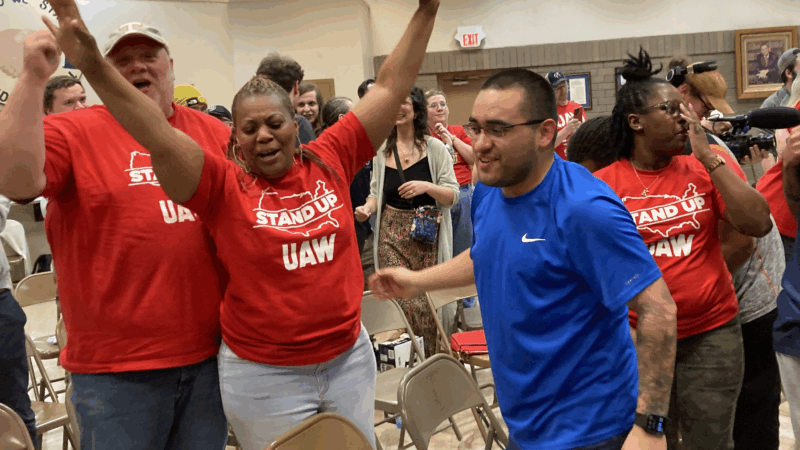As COVID-19 Spreads, Meals On Wheels Adapts To Serve Seniors
Meals on Wheels delivers food to nearly 3,000 senior citizens in Jefferson County, almost a third of whom are home-bound. Karla Lawrence, who oversees the program, says they rely heavily on volunteers to deliver daily meals, but a lot of them are also elderly and at high risk for COVID-19.
“You know, a lot of our senior volunteers aren’t going to be able to continue volunteering like they do daily,” Lawrence says, “and so we need other individuals to fill those gaps.”
She says recruiting new volunteers is a top priority and many people have already stepped up to help. Lawrence says the program is also working to serve additional senior citizens who are currently on a waiting list. She says the coronavirus could further increase demand, since all senior citizens are encouraged to stay home.
In response, Meals on Wheels announced Friday that it is changing its delivery system. Rather than one hot meal every day, volunteers will now deliver seven meals once a week.
“Because they are so vulnerable and we want to limit our exposure to those seniors,” Lawrence says, “while continuing to provide the meals to them so that they do not go hungry.”
They are also giving seniors a 21-day supply of “shelf stable meals” in case delivery has to stop at any point.
Lawrence says another challenge they face is that many senior centers are closing. Typically, more than half of Meals on Wheels’ recipients pick up their food from these kinds of places. She says they are working to establish replacement pick-up sites, and if needed, they will deliver these meals door to door.
Many nonprofits are feeling similar pressures due to the spread of the coronavirus.
“We’re stressed,” says Drew Langloh, president of United Way of Central Alabama (UWCA). “Our budgets are stressed. Our operating budgets are stressed. And at the same time, we’re being asked to do more, with less.”
At a press conference Friday, Isabel Rubio, director of the Hispanic Interest Coalition of Alabama, said the coronavirus is “hitting the Latino community like a bombshell.”
A representative with the American Red Cross said they face a “severe shortage” of blood donations due to thousands of blood drives cancelled across the country.
In response to the growing need, UWCA announced Friday the creation of a Community Crisis Fund to help people and nonprofits who are struggling financially due to the pandemic.
Officials say any individual looking for help can call 2-1-1 to get connected to area resources.
Israeli settlers kill 19-year-old Palestinian American, officials and witnesses say
Israeli settlers in the occupied West Bank shot and killed a Palestinian American man during an attack on a village, the Palestinian Health Ministry said.
Trump says he doesn’t know if aliens are real but directs government to release files on UFOs
President Donald Trump said Thursday that he's directing the Pentagon and other government agencies to release files related to extraterrestrials and UFOs because of "tremendous interest."
Trump warns of ‘bad things’ if Iran doesn’t make a deal, as second U.S. carrier nears Mideast
Iran held annual military drills with Russia on Thursday as a second American aircraft carrier drew closer to the Middle East.
Eric Dane, ‘Grey’s Anatomy’ star and ALS awareness advocate, dies at 53
Eric Dane, the celebrated actor best known for his roles on "Grey's Anatomy" and "Euphoria" and who later in life became an advocate for ALS awareness, died Thursday. He was 53.
Venezuela approves amnesty that may release of hundreds detained for political reasons
Venezuela's acting president has signed into law an amnesty bill that could lead to the release of politicians, activists, lawyers and many others. The approval marks a stark turn for the nation.
In a historic vote, Tennessee Volkswagen workers get their first union contract
Two years ago, the successful union drive at this plant was expected to spark victories throughout the South. But now, as members vote to make their contract official, momentum has fizzled.






